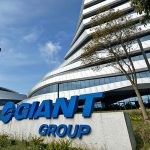On today’s analyst call, Julien Mininberg, Helen Of Troy’s CEO, said Osprey, acquired in December 2021, surpassed expectations for the second straight quarter, but Hydro Flask continued to be pressured by a shift in consumer preference from insulated bottles to tumblers.
Mininberg said that at the brick-and-mortar level, Hydro Flask “faced continued pressure in the quarter from overall softness in the insulated bottles category.” He cited similar pressure when Helen of Troy released fourth-quarter results, “Consumer preference continues to shift away from bottles in the U.S., where Hydro Flask is by far the leader, to tumblers where the brand has a smaller presence.”
Mininberg noted that after the end of the quarter, Hydro Flask executed a soft launch of its latest travel tumbler on June 21, exclusively on its website, with multiple colors and a customization option with engraving that consumers received favorably. Mininberg said, “We are excited by the strong consumer response and are optimistic about growing this new addition to the Hydro Flask family.”
In March, Hydro Flask introduced a stainless-steel bottle trade-in and recycling program. “Hydro Flask recycles the products, and the consumer receives a $5 promotional code to use on a future purchase,” said Mininberg. “This illustrates how the brand is participating in the circular economy and is providing a way for consumers to feel better about parting ways with their well-loved Hydro Flask.”
Osprey delivered a better-than-expected performance in the quarter and improved market share in technical backpacks in the U.S. “Osprey performed very well in the quarter, driven by a number of factors including our improved inventory position compared to fiscal 2023 when COVID-related factory closures curtailed supply,” said Mininberg. “We also benefited from new product introductions and accelerated demand in the travel category, both in the U.S. and abroad, as well as strong online point of sale and replenishment.”
Mininberg said Osprey expanded its number one share position in the U.S. backpacks in the most recent three-month period. The gain was driven by improved supply and product innovation. Said Mininberg, “We expect Osprey to continue to benefit from our better inventory position, to strengthen the travel market, our strong innovation, and expanded distribution in both existing and new customers in fiscal 2024.”
Overall, Helen of Troy’s Home & Outdoor segment, which includes Hydro Flask, Osprey and the OXO housewares brand, achieved sales of $217.1 million in the first quarter, down 7.3 percent overall and 7.2 percent on an organic basis.
Beyond the insulated beverage category decline, OXO was impacted by lower houseware sales due to a reduction in warehouse club channel programs and the impact of the Bed, Bath & Beyond bankruptcy.
Mininberg said OXO’s sales were impacted in the quarter by the timing of some club programs, which fell into the first quarter last year but will fall later this fiscal year. The OXO brand overall outperformed the market in core categories, even as the overall home category trends continue to normalize from COVID highs and consumer spending shifts toward necessities, travel and services.
Helen of Troy’s Home & Outdoor segment’s operating income was $22.1 million, down 25.8 percent of sales. As a percent of the segment’s sales, operating income was 10.2 percent against 12.7 percent. The 250 basis point decrease in segment operating margin was primarily due to a charge of $3.1 million related to the bankruptcy of Bed, Bath & Beyond, restructuring charges of $2.8 million, higher distribution expense, increased marketing expense, higher inventory obsolescence expense, an increase in outbound freight costs, and unfavorable operating leverage. These factors were partially offset by lower share-based compensation expense, a more favorable customer mix, and lower inbound freight costs.
Adjusted operating income decreased 8.9 percent to $34.3 million, or 15.8 percent of segment revenue from 16.1 percent of segment revenue.
Companywide, Helen of Troy reported earnings and sales were down in the first quarter but topped analyst expectations. Guidance for the year was reiterated.
Consolidated net revenue reached $474.7 million, a decrease of 6.6 percent. Wall Street’s consensus of $465.4 million.
Adjusted income decreased 19.8 percent to $46.7 million, or $1.94, but topped Wall Street’s consensus of $1.68. The decline in net income was primarily due to higher interest expense and lower adjusted operating income in the Home & Outdoor segment. Net income on a reported basis was $22.6 million, or 94 cents a share, against $24.6 million, or $1.02, a year ago.
At its Beauty & Wellness segment, including Vicks, Braun, Honeywell, PUR, Hot Tools and Drybar, sales slid 5.9 percent to $257.5 million. Organic sales were down 8.1 percent, primarily due to lower sales of seasonal fans, hair appliances, and air filtration and humidification products primarily driven by SKU rationalization efforts, softer consumer demand, shifts in consumer spending patterns, and reduced orders from retail customers as they rebalance trade inventory levels in line with softer consumer spending. The Beauty & Wellness segment operating income was $18.5 million, up from $4.1 million a year ago, as the 2022 quarter was impacted by EPA compliance costs. Adjusted operating income increased 0.6 percent to $31.9 million.
During the 2023 fourth quarter, as part of its global restructuring plan, Project Pegasus, Helen of Troy combined its Health & Wellness and Beauty operating segments into a single Beauty & Wellness segment.
Mininberg said the better-than-expected results came despite continued pressure on categories from lower consumer demand and shifting buying patterns. He said, “We’re also pleased to improve our margins, make further progress on inventory reduction and deliver significantly improved cash flow.”
Mininburg said several leadership brands outperformed and grew market share in the U.S. in the quarter. Beyond Osprey in packs, shares gains were seen in kitchen utensils and storage containers from OXO, pharmacy humidifiers for Vicks, nasal aspirators for Braun and seasonal heaters for Honeywell. International sales also outperformed during the quarter following efforts to accelerate growth overseas.
Mininburg said Project Pegasus remains on track to deliver $20 million in savings in fiscal 2024.
” On the structural side, the specific changes we announced in January are working,” Mininberg said of Project Pegasus. “The new North American regional market organization is expected to take our sales and shopper capabilities to new levels. In our business segments, our brand and category teams are now even more obsessed with delighting consumers. Similarly, in shared services, our global operations teams are implementing new standardized tools and fully owning our supply chain end-to-end. On the savings side, the set of work streams we are executing under Pegasus are nicely on track. In all cases, our people are flowing to the work, they are demonstrating their adaptability, demonstrating the power of our culture, and executing with excellence. We continue to believe these initiatives will improve profitability and provide significant fuel to make additional growth investments in our flywheel that are intended to drive sustainable long-term growth and value creation.”
Mininberg noted that as part of its investments in nearshore sourcing, Helen of Troy relocated some production of Hydro Flask bottles to the Western Hemisphere, with OXO Pop containers also expected to begin nearshoring by early fall of 2023.
“We now have greater ability and capacity for inline customization and personalization for direct-to-consumer Hydro Flask orders,” said Mininberg. “This enables consumers to make their bottle or tumbler fit to unique personalities and needs through engraving customer color combinations and custom accessories like strap, lid and boot style. Most recently, in June, we increased our personalization options by adding 86 new designs that consumers can choose from.”
Looking ahead, Helen of Troy is maintaining its expectations for net sales and adjusted EPS for the full fiscal year as well as key cash flow and balance sheet targets. Sales are expected to decline in the range of 5.2 percent to 2.8 percent. This continues to include a year-over-year decline of $35 million, or 1.7 percent, from the removal of Bed, Bath & Beyond revenue from the outlook and a similar-sized reduction from the Pegasus SKU rationalization initiative.
By segment, Home & Outdoor sales are expected to range between a decline of 1.7 percent to a growth of 1.0 percent. Beauty & Wellness net sales are expected to decline in the range of 8.0 percent to 5.8 percent.
Non-GAAP adjusted diluted EPS is still expected in the range of $8.50 to $9.00, which implies a decline of 10.1 percent to 4.8 percent.
Mininberg said Helen of Troy still expects to return to adjusted EPS growth in the back half despite expected pressure on categories and consumers for the remainder of the fiscal year, including inflation, higher interest rates and increasing household debt, all of which are headwinds to discretionary purchases.
He added, “On a positive note, we are seeing that retailer inventory rebalancing has largely normalized following the significant adjustments affecting nearly all consumer discretionary categories over the past year. Our retail partners are now increasingly matching their orders to consumer demand, where we have syndicated point-of-sale data, and in retailers, where we have specific point-of-sale data, we are seeing demand normalize in some of our categories and settle at or above pre-COVID levels.”
Photo courtesy Osprey
















